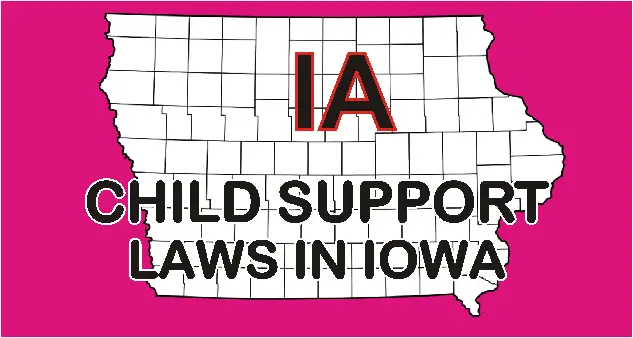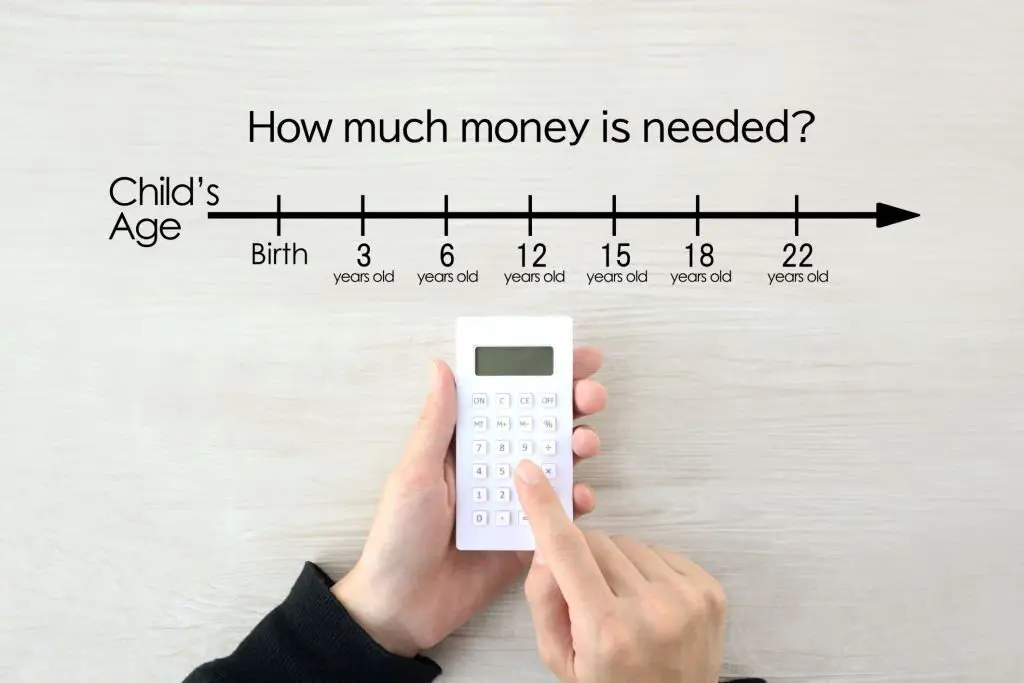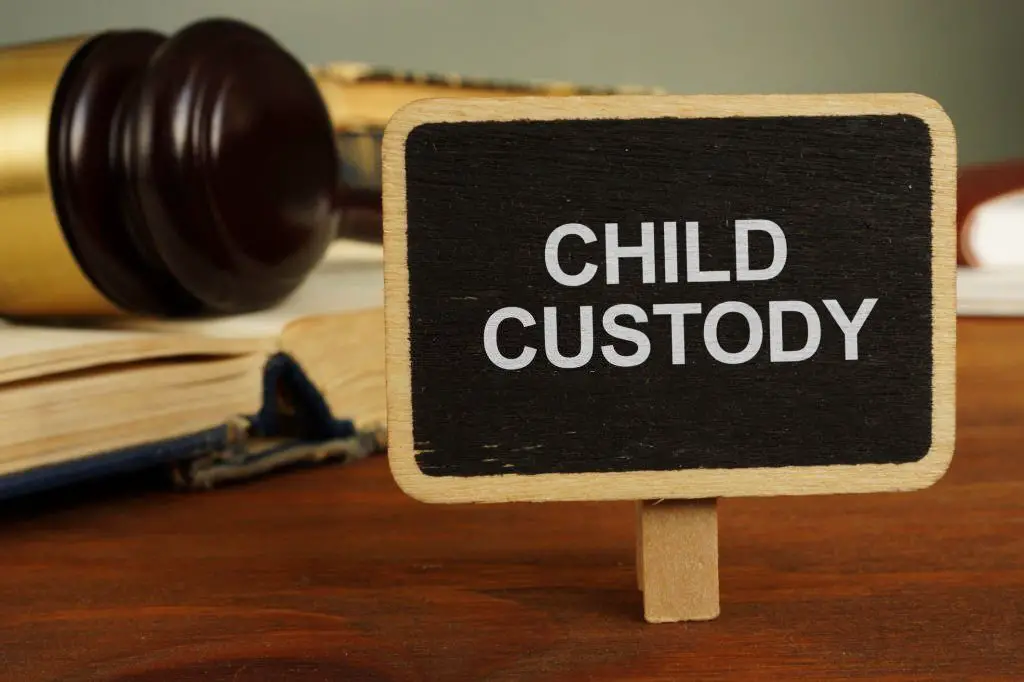
The laws governing child support in Iowa are different from that of other states. IA child support law sets how much the child maintenance should be, and the duration of such payments, plus it seeks to guide parents in exceptional cases such as deviation, support for disabled children, and retroactive support.
As you may already know, child support (or child maintenance) is a continuous monetary payment made by a spouse to another spouse, guardian, caregiver, or the state for the upkeep of children after a divorce or separation.
The person who is required to pay child support is referred to as the “obligor,” whereas the person who is eligible to receive child maintenance is referred to as the “obligee.”
What is IA Child Support Laws?
The Supreme Court of Iowa ordered changes to the Iowa Child Support Guidelines and the Iowa Court Rules on September 3, 2021, and they take effect on January 1st, 2022. According to the order from the Iowa Supreme Court, the Child Support Review Committee delivered its findings to the court on June 1st, 2021.
Studies and economic data were examined in determining whether to amend the rules. The following decisions and modifications to the Iowa Child Support Guidelines and Rules were made by the court:
Amendment to Child Support Guidelines and Rules Effective in 2022 as Ordered by the Iowa Supreme Court
- updating the Schedule of Basic Support Obligations to reflect Iowa’s most recent economic data.
- The Iowa Courts should continue to apply low-income adjustments in child support cases to account for rising minimum child support requirements.
- In the state of Iowa, the minimal child support amount has been raised to $50 per month for one child.
- The minimal amount of child support in Iowa has been raised to $75 per month for two kids.
- In the state of Iowa, the minimal child support amount has been raised to $100 per month for families with three or more kids.
- When a paying parent’s net monthly income is $1,101.00 (it was $1,151.00 under the previous rule), child support is adjusted for low income; however, this adjustment does not apply when both spouses share physical custody of the children.
- The cost of childcare for the custodial parent (the parent who does not pay child support) will now be considered when considering the necessity for an adjustment or variation straying from the usual child support rules. A written conclusion must be made by the Iowa Court.
- The court now can examine each parent’s contributing share of income while assessing whether a deviation straying from the usual child support guidelines is correct. The number of childcare costs that necessitate a variance should not be greater than the noncustodial parent’s income share.
- If there are no exceptional circumstances where the deviation would still be appropriate, the variance for childcare expenses should stop when the kid or children reach the age of 13.
- The original child support requirement payment that was in place prior to the deviation being granted will be immediately reinstated when the variance expires.
- Variances are not permitted when one or more parents share physical custody of the child(ren) or when the non-custodial parent (the parent paying child support) earns between $0 and $1,100 per month.
- The guidelines’ income limits for ordering medical support have changed; now, low-income parents who make between $0 and $110,000 per month are excused from making payments. Previously, this exemption required the paying parent to earn between $0 and 1150.00 per month.
What does Child Support Cover in Iowa?
Child support includes payments for things like clothes, food, medical care, hospital stays (including medical assistance), confinement, education, burial costs, and other necessary and acceptable costs based on the parties’ financial situation.
The goal of the child support system is to make sure that the child maintains an adequate living standard. All child support payments are made with the child’s best interests in mind. Sometimes, the non-paying parent may not be certain what the payment should cover.
Child Support When One Parent Lives Outside Iowa
To enforce child support orders beyond state boundaries, each state has to have the Uniform Interstate Family Support Act (UIFSA) in place. Iowa is no exception.
The UIFSA ensures that child support processes and procedures are consistent across states. When one spouse lives in another state where the Iowa courts do not have the authority to adjudicate or enforce orders, UIFSA reduces these bottlenecks.
With UIFSA, you still have the right to enforce your child support order even if the spouse or other party who is meant to be paying child support moves or makes their home in a different state from the one where the order was made.
The Department of Revenue and/or the Office of Child Support Enforcement may request that the parent’s child support payments be deducted from their wages.
How is Child Maintenance Calculated In Iowa?

Learn How Child Maintenance Calculated In Iowa
To calculate child maintenance, Iowa uses the Income Shares Model by evaluating the number of children involved and the combined net income of both parents. Net income is your “take-home pay,” or the amount of money you keep after deducting things like taxes, health insurance, and other expenses.
While many factors can be taken into account when calculating a parent’s net income for child support purposes, there are many others that cannot be. These consist of:
- Auto loans
- Housing expenses
- Paying with a credit card
- Contribution deductions
- Plans for voluntary pensions
- Savings
- Payments for public assistance
Iowa Child Support Calculator and Worksheet
While a child support calculator can be used to estimate child support, it is not a guarantee of the final amount of child maintenance that the judge will order. A child support worksheet is a form used by the IA courts (or negotiating spouses) to approximate the basic child support obligation of the parents.
Regardless of which approach you use, spouses can decide on a child support sum and amend the worksheet accordingly to ensure it accurately reflects their agreement. Both establish a presumption duty to pay child support.
The final decision on the amount of child support is made by the administrative law judge, administrator, or court.
How Iowa Guidelines are Applied
To determine the amount of support due, judges reference a chart known as the Iowa Schedule of Basic Support Obligations (Schedule).
Example for One child from a divorcing spouse who reside with their mother.
- Dad makes a monthly net income of $2400.
- Mom makes $600 every month.
- The parents’ combined monthly net income is $3000.
- The Schedule yields a total support obligation of $686.
- Dad’s net income accounts for 80% of the family’s income.
- Dad’s monthly assistance is $686 x.8 = $549.
For medical expenses or health insurance, there can be an additional adjustment.
- Only the noncustodial parent’s income is taken into account for low-income noncustodial parents.
- According to the Schedule, low-income parents have incomes in the shaded area.
For instance, if there is only one child and the noncustodial parent’s adjusted net income is $1,000 per month, then the noncustodial parent’s child support will be $1,000.
Gross Income Included in Calculating Child Maintenance
For child support calculation purposes, gross income includes:
- all wages and salary, including commissions, military pay, tips, overtime, and bonuses
- self-employment income
- interest and dividends
- net rental income from property the parent owns
Even jobless parents are likely to have some sources of income, like:
- severance pay
- unemployment benefits
- retirement benefits
- veterans’ benefits
- disability benefits, or
- workers’ compensation awards.
An IA family court judge may also allocate an income value to parents who do not currently have income-earning employment (like a second house). If a jobless parent inherits assets that can be sold, for instance, the judge may include the property’s market value as a part of such parent’s income.
Where parents willfully go unemployed or underemployed in order to avoid paying child support, judges may infer (assign) income based on what they are supposed to be earning.
Net Income for IA Guidelines

How to determine Net Income for IA child support
Remove the following costs from the total gross income to get the parent’s net income for paying child support in Iowa:
- Social Security taxes, or any mandated retirement plan contributions if the parent does not pay those taxes.
- Income taxes, both federal and state (based on the tax rate for a single person claiming one exemption)
- union dues
- The IA court has ruled the parent to pay the child’s health and dental insurance premiums, as well as additional medical bills.
Parents who have already paid child support for another kid or children (from a previous relationship) may be eligible for a refund.
Is Medical Health Insurance Part of Child Support in Iowa?

Medical Health Insurance and Child Support in Iowa
Yes, in addition to the amount of support determined by the guidelines in Iowa, the parents will be responsible for the child’s health and dental insurance.
Whereas the noncustodial parent is presumed to provide coverage, this can readily be transferred to the other parent if it makes good sense.
For instance, suppose the custodial parent’s employer offers healthcare insurance for the dependent but the noncustodial parent does not.
Factors Iowa Courts Consider Before Ordering Maintenance
The following factors must be considered by the court when determining whether Iowa Family Code applies:
- The age of the child and needs; the parents’ ability to assist
- Financial resources available to the child
- For a set period of time, you have custody and access to a child.
- An increase or decrease in the obligee’s earnings or income due to the obligee’s property and assets
- Child care expenses incurred by either parent in order to keep a job
- any other children under the care of either party
- Any other children under the care of either party
- What kind of alimony or spousal maintenance is being paid or received;
- Obligor or obligee receives an automobile, house, or other benefits from his or her employer or business entity.
- The parties or the child’s special education, health-care, or other expenses
- The cost of traveling to obtain custody of and access to a child.
- Cash flow from any estate and assets, including real estate, personal property, and business property, can be positive or negative.
How to Challenge or Modify Child Support Order
To request a change, fill out the Request to Modify a Child Support Order form. This form is available online or at the Iowa Child Support website, depending on where you live. The level of ongoing support could increase, decrease, or remain unchanged.
Medical assistance might be altered or added. According to Iowa Code sections 252H.3A and 252B.5, any parent may be identified as a respondent.
Iowa is not always entitled to a revision in the rules. If the court is unable to amend the order, they ask the state that has the authority to do so. Any fees that the other state levies may have to be paid by you or the other party.
Conditions for Modification
The courts first determine if ALL of the following are true before considering whether to revisit the order:
- The only state with the authority to modify the amount of child support is Iowa, which is carrying out the court’s ruling.
- At least 24 months had passed since the order was made, the child support amount changed, or the state declared that the child support amount could not be altered, whichever came first.
- The current child support payment expires in more than a year.
If any one of the aforementioned conditions is false, we will notify you and deny your request. The message explains the grounds behind our denial.
- If all of the aforementioned are accurate, we agree to the request. Using either our standard or condensed review method, we determine whether we can perform the review.
- In the normal review procedure, we give you a notification informing you that a review will be conducted (referred to as the Notice of Intent). We deliver the warning with a financial statement that each parent must complete.
Steps to Collect Child Support in Iowa

Steps to Collect Child Support in Iowa
Getting a child support order in place is only half the struggle in Iowa. You’ll also have to collect the money itself. A noncustodial parent is responsible for paying the full amount of child maintenance per month as imposed by the court. Here are the steps for getting child support in IA
1. Open a Child Support Case
Complete a child support application with your local child support agency/office
2. Locate the Other Parent
To begin the child maintenance procedure in IA, the child support services (CSS) office will use the information provided by the applying parent, as well as information gathered from other sources, to try to locate the other parent.
3. Establish Parentage
It’s critical to establish a legitimate relationship with the child when the other parent has been located. The state will assist you in locating the sufficient means. Parents can choose to acknowledge their parentage voluntarily or organize a genetic screening.
4. Establish a Child Support Order
An Iowa child support order specifies how much the other parent should pay and includes details such as the payment schedule and provisions for the child’s health insurance.
5. Set Up Payment
Deducting child maintenance from a parent’s paycheck and transferring the money to the other parent or guardian is the most typical method of payment. It’s a simple way to make and track child support payments.
6. Enforce the Support Order
Your IA child support services will enforce the child support order if the noncustodial parent does not pay the full amount or does not pay any. Exposing overdue child support payments to credit bureaus, intercepting income tax refunds, and Withholding child maintenance from unemployment or worker’s compensation benefits are examples of other enforcement measures.
7. Review the Order
Three years after the order is issued, either parent can request their local child support office to revise it. They can ask for a reassessment sooner than three years if a parent’s situation has changed significantly, such as loss of employment or imprisonment.
Iowa Child Support Services Office, Number and Login Portal
Iowa Human Services Child Support Recovery
Address: 525 5th Ave H, Des Moines,
IA 50319,
United States
Phone: +1 515-725-7650
Website: https://dhs.iowa.gov/node/938
Child Support and Arrears
Numerous methods of the collection also carry consequences for parents who break child support orders. Additionally, possible fines and consequences of not paying child support orders in Iowa include:
- warrant issued for the payor’s arrest, either in a civil or criminal case;
- disobedience in court;
- the suspension, cancellation, or refusal of a variety of licenses, including those for professional or recreational purposes (such as hunting or fishing);
- fees, incarceration, or both; and
- Community service or probation.
How to enforce payment of child support arrears in IA,
the custodial parent should do the following:
- Getting an order for “income withholding”
- Seizing of bank accounts;
- Notifying credit bureaus that such a payor party is directly in breach of a court order by filing reports with them
- Intercepting the payor’s federal and state tax returns
- If the payor parent’s child support arrears are more than $2,500 overdue, you can ask the U.S. Department of State to withdraw their passport.
- Getting a lien on the payor’s home or property
- Launching a contempt investigation
If you feel the arrears are being demanded wrongly, you can learn how to get child support arrears dismissed HERE.
How to Pay Child Maintenance in Iowa
In Iowa, parents can pay child maintenance in a variety of ways, as long as your order doesn’t state otherwise:
- by debit or credit card,
- mail,
- check
- bank transfer
- direct deposit
- income withholding, or
- auto-draft from a bank account.
How to Check your Child Support Payment History in IA

How to Check Child Support Payment History in IA
When there are disagreements between the parents and a need to confirm how much money is owed, child support payment records are extremely beneficial.
To check your child support payment history, call 1-888-229-9223 (toll-free in the entire country) any time, day or night. www.childsupport.ia.gov, the client website, offers case information and enables you to view payments, submit changes, and browse details about our services.
When Does Child Support End in Iowa?
In Iowa, child support typically terminates when the child turns 18 or completes high school (whichever comes first).
However, if the parents agree to continue paying child support until the child graduates from college or an analogous program, or even permanently, payments may go on, particularly if the child is unable to become a self-supporting adult owing to a physical or mental handicap.
On the other hand, if one of the following situations arises, non-custodial parents may stop paying child support or cut their payments before the child turns 18:
- The kid is given their freedom (self-supporting)
- Before turning 18 years old, the child marries.
- Repudiation, which is when a child denies that the paying parent is actually his or her parent,
- Determination of paternity
- The noncustodial parent’s income is below the federal poverty level.
- The paying parent may need to submit a formal petition to end the child support order if there is no set expiration date for the order. A noncustodial parent’s child support obligation cannot be terminated by the court without first filing a “Motion to Terminate the Income Withholding Order”.
- Additionally, if one parent has a “significant change in circumstances,” both parents may attempt to alter (or vary) the amount of support. Examples of such changes frequently occur when a parent inherits money, loses a job, or the requirements of the child change.

Understanding Custody Rights of a Child in Iowa
How Does IA Child Support Work if one Parent Has no Job?
If you’re unemployed, there’s a good chance that you still receive workers’ compensation, unemployment, or disability payments that can be used to pay child support.
Child support may be estimated using a calculation of earning ability; If the court determines that a parent is voluntarily unemployed or underemployed without justification. This may include:
- For the purposes of determining or changing child support, imprisonment does not count as voluntary unemployment.
- To the extent that it is known, the parent’s specific circumstances must be taken into account when determining the parent’s earning capacity, which may also take into account factors like employment potential, likely earnings level based on work and training history, occupational qualifications, available job opportunities, availability of employers willing to hire the parent, and earning levels in the community.
- The parent’s assets, place of residence, level of education, literacy, age, health, criminal record, and other employment impediments, history of job hunting, and other pertinent criteria may also be taken into account by the court.
- The court cannot substitute earning capacity for real income or assign income in any other way unless it has been determined in writing that doing so would result in grave unfairness or that changes are required to meet the needs of the child(ren) or the parties in a fair manner.
Is Child Support Tax Deductible in Iowa?
NO. In Iowa, child support payments are neither taxable to the recipient nor tax-deductible by the payer as stated by the IRS. Don’t include child support payments when calculating your gross income to see whether you have to file a tax return.
However, either parent may be eligible for a dependency exemption per child. If the parents can’t agree on who receives the exemption, the judge will set out the terms in a court order.
Getting a Skilled Iowa Child Support Attorney
If you are involved in a family law matter in Iowa, you may have a lot more questions than answers at this moment. You are not alone; Correspondence with members has shown that using the services of specialized child support attorneys saves a lot of hassles and most importantly, ensures you come out as a winner for you and your kid.
If you need to fight your child maintenance cause in IA with confidence, then you’ll need attorneys that are both empathetic and strong.
Luckily, we have compiled a database of these expert child support lawyers and made them available for the convenience of our members. You can reach them at the click of a button for legal advice and representation on child maintenance.
Click Here to Get our Free Iowa Alimony recommendation.
Iowa Resource
- Iowa Child Adoption Guidelines
- Iowa Childcare Guidelines
- Iowa Child Custody and Visitation Guidelines
- Iowa Child Support Guidelines
- Iowa Divorce Guidelines
- Iowa Marital Property Guidelines
- Iowa Spousal Support Guidelines
- How to Check Iowa Child Support Payment History
- Iowa Schedule of Basic Support Obligations
- Iowa Child Support Calculator
Child Support Laws in all 50 States
A - Alabama | Alaska | Arizona | Arkansas
C - California | Colorado | Connecticut
D-H - Delaware | Florida | Georgia | Hawaii
I - Idaho | Illinois | Indiana | Iowa
K-L - Kansas | Kentucky | Louisiana
M - Maine | Maryland | Massachusetts | Michigan | Minnesota | Mississippi | Missouri | Montana
N - Nebraska | Nevada | New Hampshire | New Jersey | New Mexico | New York | North Carolina | North Dakota
O - Ohio | Oklahoma | Oregon
P-S - Pennsylvania | Rhode Island | South Carolina | South Dakota
T-U - Tennessee | Texas | Utah
V-W - Vermont | Virginia | Washington DC | Washington State | West Virginia | Wisconsin | Wyoming




